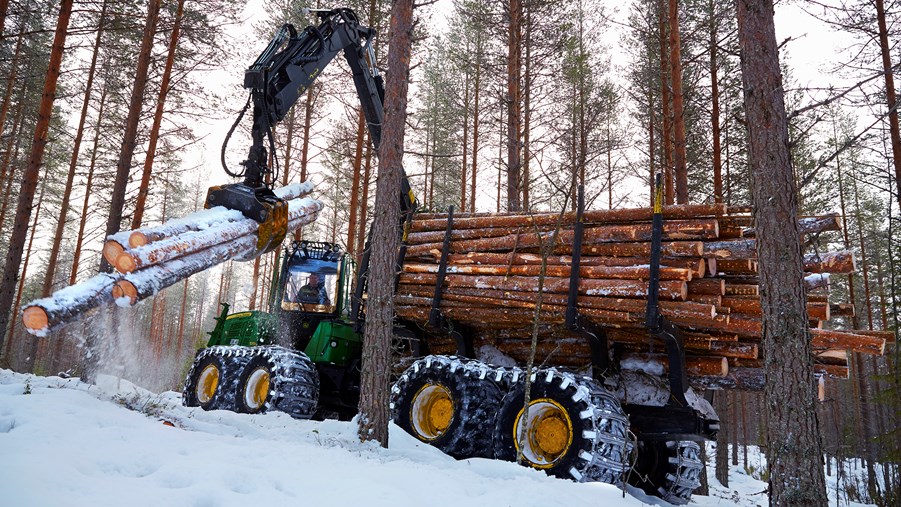
The forest industry is one of Sweden’s most important business sectors. It provides employment throughout the country. Thanks to its natural raw materials and products, the forest industry has a key role in the development towards a sustainable, biobased society.
What is forest industry?
Companies that use forests to provide the raw materials for their products and services are all part of the forest industry. This includes producers of pulp, paper, cardboard, packaging and biofuel. Similarly, sawmills producing all sorts of boards, planks, roof trusses and other prefabricated construction elements are also included.
The forest industry – a part of the climate solution
Forests are extremely valuable for the climate. While growing, forests bind carbon dioxide. Wood-based products then continue to store carbon dioxide throughout their service lives. A switch from a fossil-dependent economy to a biobased economy is an important part of the solution to stop global warming. Sweden and Swedish forest industry are uniquely qualified to be a force driving along the development towards a bioeconomy. We have the natural resources, astute innovators and a strong desire to invest in a fossil-free society.
The forest industry – a major player in Sweden's economy
The forest industry accounts for 9 – 12% of the employment, exports, turnover and added value in Swedish industry. This is strongly export-oriented. Furthermore, as most of the raw materials are domestic and the import of forest industry products is relatively small, our forest industry makes a significant contribution to Sweden's balance of trade. Almost 90 percent of our pulp and paper production is exported. The corresponding figure for sawn timber is close to 70 percent. This places Swedish forest industry third in the world's exporters of these products. The forest industry directly employs 70,000 people in Sweden. In several of our counties, the forest industry accounts for 20 percent or more of industrial employment.



